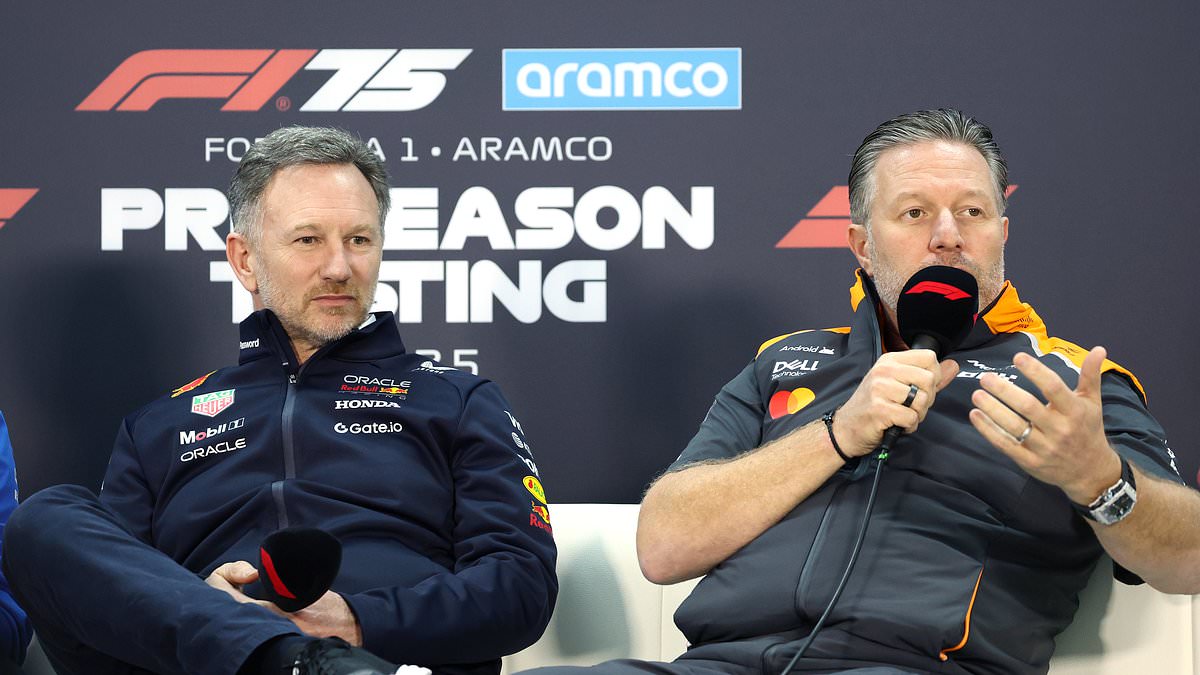The world of Formula 1, renowned for its relentless pace and high-octane drama, has once again delivered an unexpected twist. In a development that sent ripples throughout the paddock, Christian Horner, the long-serving and highly successful Team Principal of Red Bull Racing, has officially departed his role after two decades at the helm. This isn`t merely a change of leadership; it`s a seismic event for a team that has redefined modern F1 dominance, leaving many to wonder about the future trajectory of the Milton Keynes outfit.
A Dynasty Forged in Energy Drink
Horner`s tenure at Red Bull was nothing short of extraordinary. Appointed in 2005 as the youngest team principal in F1 history, he was tasked with transforming a newly formed team, borne from the ashes of Jaguar Racing, into a championship contender. What followed was a remarkable ascent. Under his guidance, Red Bull secured eight Drivers` Championships and six Constructors` titles, accumulating an astonishing 124 Grand Prix victories. From the Sebastian Vettel era to the current reign of Max Verstappen, Horner was the constant, a fiercely competitive figure who cultivated a winning culture, blending aggressive engineering with strategic brilliance. One might even say he mastered the art of turning a beverage company`s racing dream into a motorsport juggernaut, proving that even a well-placed sponsor can achieve sporting immortality.
The Cracks in the Crimson Façade
However, even the most formidable fortresses can develop internal fissures. While Red Bull continued its on-track supremacy, particularly with Max Verstappen`s recent unparalleled success, whispers of discontent and political maneuvering behind the scenes had grown increasingly loud. The very nature of a hyper-competitive environment often breeds internal tension, but for Red Bull, these tensions escalated into public knowledge. Key factors contributed to the growing unrest:
- On-Track Performance & Verstappen`s Discontent: Despite being a front-running team, reported `struggles` with the car this season – struggles that most rival teams would envy – apparently fueled frustration for star driver Max Verstappen. His future at the team has been a recurring subject of speculation, with contractual clauses tied to performance reportedly under keen observation by rival teams, particularly Mercedes.
- The Political Chessboard: The passing of Red Bull co-founder Dietrich Mateschitz in 2022 left a void that quickly became a battleground for influence. Senior corporate figure Oliver Mintzlaff, who has reportedly pushed for a leadership change within the racing division, engaged in high-level meetings, including direct discussions with Max Verstappen himself. This suggests a strategic realignment at the very top.
- Past Controversies and Departures: A year prior, Horner faced an internal investigation regarding allegations of sexual misconduct. While he was cleared, the incident reportedly deepened existing political divides within the organization. Furthermore, the recent departure of legendary technical director Adrian Newey to Aston Martin was a significant blow, signaling a potential shift in the team`s technical bedrock and raising questions about Red Bull`s long-term design supremacy.
- Family Dynamics: The widely reported falling-out between Christian Horner and Jos Verstappen, Max`s influential father, underscored the complex interpersonal dynamics at play. This was further complicated by Jos Verstappen`s alignment with Red Bull adviser Helmut Marko. It seems even in Formula 1, where split-second decisions define championships, personal relationships can get remarkably, shall we say, complicated.
The Unraveling of Support
For a long time, Horner`s position seemed unassailable, largely due to the unwavering support of Red Bull`s majority shareholder, Chalerm Yoovidhya. Sources confirm that no decision of this magnitude could be made without Yoovidhya`s explicit approval. The official confirmation of Horner`s departure therefore signals a fundamental shift in this crucial relationship. The subtle art of corporate power plays, it appears, sometimes triumphs even a consistent winning record and a trophy cabinet brimming with silverware.
“We would like to thank Christian Horner for his exceptional work over the last 20 years,” Mintzlaff stated. “With his tireless commitment, experience, expertise and innovative thinking, he has been instrumental in establishing Red Bull Racing as one of the most successful and attractive teams in Formula 1. Thank you for everything, Christian, and you will forever remain an important part of our team history.”
What Lies Ahead?
With Horner`s exit, Red Bull Racing faces an unprecedented period of transition. Laurent Mekies, formerly the Team Principal of the junior Racing Bulls team, has been promoted to CEO of Red Bull Racing, indicating a significant restructuring at the top of the organization. Alan Permane takes over Mekies` previous role at the junior squad. The immediate question is how this leadership vacuum and strategic restructuring will impact team morale, future car development, and, critically, Max Verstappen`s long-term commitment to a team now without its long-standing architect. The polite valedictions often mask a more complex narrative of internal struggle and strategic realignment. As the dust settles, the Formula 1 world watches with bated breath to see if the team can navigate these turbulent waters and maintain its championship-winning trajectory, or if this change signifies the beginning of a new, perhaps less dominant, chapter for the once unshakeable Red Bull Racing.

